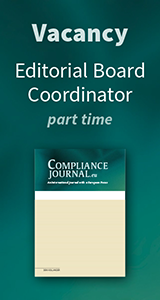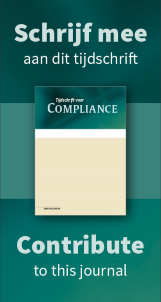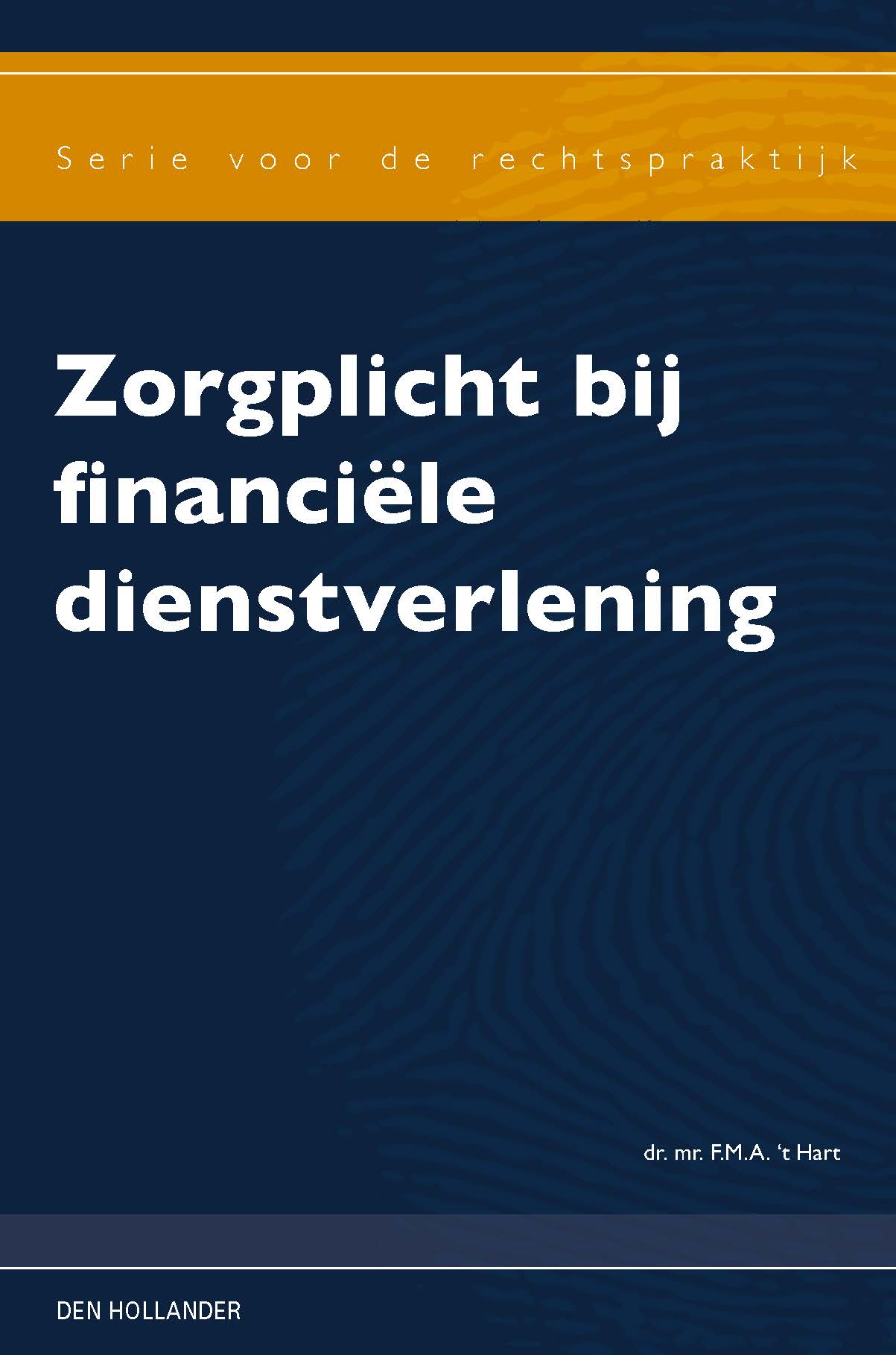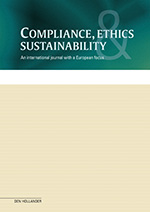Compliance, Ethics & Sustainability
Voorheen tijdschrift voor Compliance
2023 nr. 2
Redactie
Hoofdredactie Sharon Oded
|
Redactie Joris J. Blaauw Renske Fikkers Karen F. Fluks Emmeline van Heukelem Arend Koper Edward Nkune Peter-Jan Engelen mr. A. B. Schoonbeek C. Sijstermans LLM Marlon Straathof Marijke Terpstra Bartheke Weerstra Anne-Claire L. Wilmink
|
Vaste medewerkers Sam Curtis Edgar D. Karssing
|
Redactiesecretaris(sen) Frank T.G.J. Segers
|
Inleiding
Following on from the first edition of 2023 which focused on 'European enforcement and supervision', the second edition of the 'Compliance, Ethics and Sustainability' Journal (formerly known as: Tijdschrift voor Compliance) will zoom in on growing threats to the economy and integrity of our financial systems which have become increasingly international by nature: 'AML, Corruption and Fraud'. Recent scandals such as 'Qatargate' at the European Parliament, the death of journalist Peter R. de Vries in the Netherlands and the recent action of law enforcement against a major cross-border VAT ... ...lees meer
Artikel
J. Boogaard1The European Financial and Economic Crime Centre (EFECC) at Europol enhances Europol's operational and strategic support by preventing and combating financial and economic crime. One of the strategic priorities is to combat money laundering related to drug trafficking. 'The profits from these crimes are substantial and this has an impact on internal security', says Burkhard Mühl, Head of EFECC. In December 2020, Mr. Mühl joined Europol after serving as the Head of Unit in the EU Policy and Coordination Unit at the Austrian Ministry of the Interior. He holds a Master of Arts degree... abonneren of dit artikel kopen.
Aziz Rahman and Francesca Cassidy-Taylor1The UK has one of the world's largest and most open economies. This openness makes the UK appealing to investors and those looking to do business with UK-based entities. But this appeal also gives rise to legal and compliance vulnerabilities which are ripe for exploitation by those who are not welcomed by 'UK PLC': the bad actors who use the UK's financial infrastructure and system to perpetrate fraud and money laundering. While this is serious enough in its own right, such practices also fund organised crime in the UK and facilitate corruption overseas. This threat of illicit finance ex... abonneren of dit artikel kopen.
prof. mr. dr. B. Snijder-Kuipers1Op 1 april 2023 was de deadline voor het registreren van uiteindelijk belanghebbenden (UBO's) van bepaalde trusts en alle fondsen voor gemene rekening (FGR). In deze bijdrage wordt eerst ingegaan op de drie Nederlandse registers. Daarna wordt besproken in welke gevallen registratie van trusts moet plaatsvinden en wie UBO's van een trust en van een FGR zijn. Een vergelijking wordt gemaakt tussen het UBO register voor vennootschappen en andere juridische entiteiten en het UBO register voor trusts en soortgelijke juridische constructies. Daarbij wordt ingegaan op knelpunten en worden mogeli... abonneren of dit artikel kopen.
D. Langenkamp1De mier, de havik en de vleermuis De strijd tegen witwassen is toe aan een volgende stap. In dit artikel worden, geïnspireerd door het Cynefin-model,[2] drie strategieën beschreven die voor organisaties alle drie van belang kunnen zijn in de gereedschapskist tegen witwassen. Allereerst de mier, waarbij er een focus is op efficiëntie en bekende patronen. Ten tweede de havik, waarbij het draait om inzicht en overzicht. En tot slot de vleermuis, gericht op de meest systemische vormen van witwassen. In 1913 introduceerde Henry Ford de lopende band in zijn bedrijf. Een... abonneren of dit artikel kopen.
Sharon Hall and Philip Macmillan1In a fast-moving, continually changing world where regulations are becoming ever more stringent, there is an increasing expectation that organisations will take proactive steps to identify, mitigate and protect themselves from the risks of financial crime, sanctions, and fraud. 1. Introduction Compliance programs are a central part of an organisation's risk management strategy and underpin the overall development of an ethical and value driven culture. They seek to provide a framework to support the mitigation of identified business risks such as fraudulent a... abonneren of dit artikel kopen.
mr. R. Middelburg1The payment value chain; which PSP must apply CDD and TM on who? Wwft institutions must perform Customer Due Diligence (CDD) on their customers and their customers' UBOs, perform transaction monitoring (TM) over the business relationship with their customers and report unusual transactions to the authorities. When a card-acquirer provides payment services to a payment facilitator (PFac), it is debatable whether the PFac's merchants (Sub-Merchants) qualify as the card-acquirer's customers and business rela... abonneren of dit artikel kopen.
mr. A. Hoesseinzada1On 18 January 2023, the Dutch Central Bank (De Nederlandsche Bank, DNB) imposed a fine on Coinbase Europe Ltd (Coinbase) for offering crypto-asset services in the Netherlands without being duly registered. As follows from DNB's decision,[2] Coinbase and DNB had differing ideas on whether servicing Dutch residents on the basis of reverse solicitation triggers the registration requirement of Art. 23b of the Dutch Act on the Prevention of Money Laundering and Terrorist Financing (Wet ter voorkoming van witwassen en financieren van terr... abonneren of dit artikel kopen.
Vorige edities
2024
2023
2022
Eerdere edities kunt u doorzoeken in het archief.
 RSS
RSS





 RSS
RSS